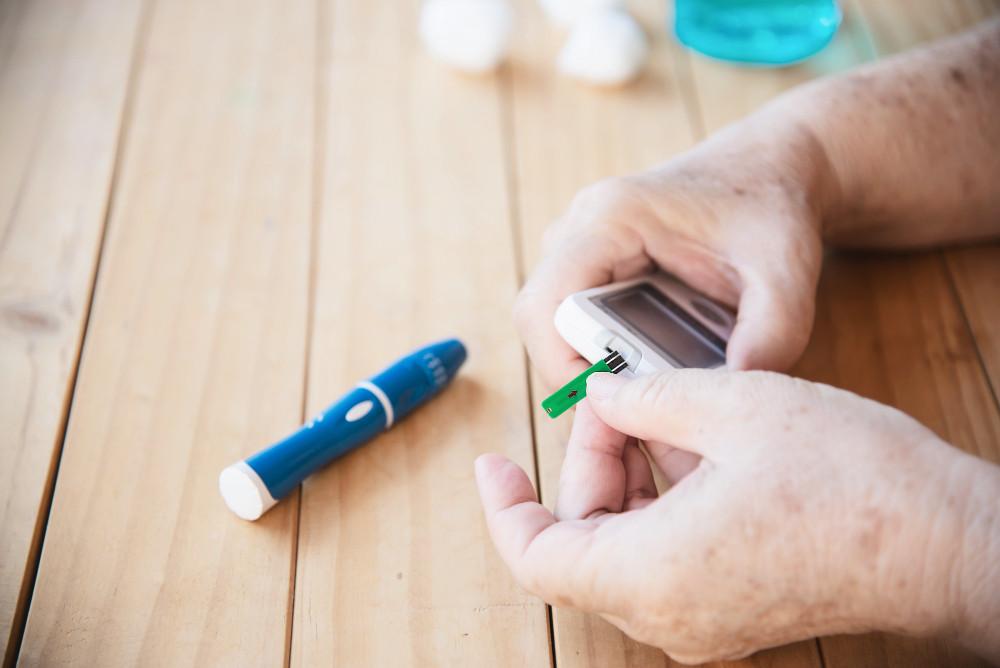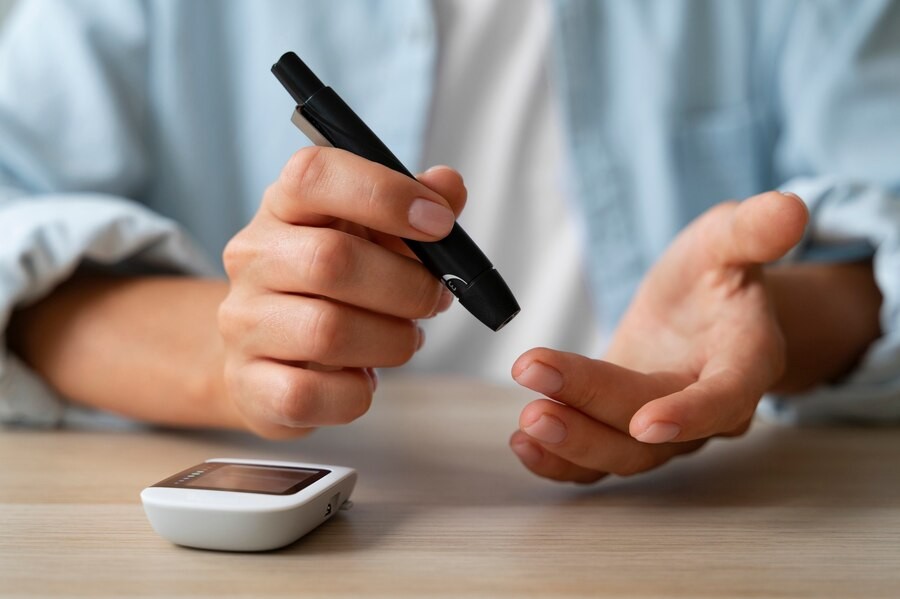Diabetes adalah kondisi kronis yang perlu terus dipantau hingga seumur hidup. Selain melakukan pemeriksaan kadar gula darah secara rutin, diabetesi (pengidap diabetes) juga perlu selektif memilih makanan dan mengubah gaya hidup menjadi lebih sehat. Situasi ini terkadang dapat menyebabkan pengidap diabetes mengalami burnout atau yang dikenal dengan istilah diabetes burnout.
Apa Itu Diabetes Burnout?
Ketika seseorang didiagnosis mengalami diabetes, umumnya ia perlu menjalani serangkaian pengobatan dan perubahan gaya hidup dalam jangka panjang bahkan seumur hidup. Diabetesi perlu lebih selektif dalam memilih makanan, meluangkan waktu untuk olahraga, dan melakukan cek darah secara rutin setiap hari. Karenanya, wajar jika pengidap diabetes merasa energinya terkuras secara emosional dan mental.
Setiap orang memiliki respon yang berbeda-beda terkait dengan kondisi diabetes yang dialami. Namun ketika Anda merasa kelelahan, kewalahan dan frustrasi dalam mengelola diabetes, dapat dikatakan Anda mengalami diabetes burnout.
Beberapa penyebab diabetes burnout antara lain:
- Tekanan diabetes yang berkepanjangan: Diabetesi dapat mengalami beban mental karena harus terus-menerus memperhatikan kondisi kronis yang dialami, terlebih lagi jika mengalami komplikasi. Kondisi ini dapat melelahkan bagi diri sendiri dan orang lain di sekitarnya.
- Gagal memenuhi sasaran pengobatan: Ketika diabetesi merasa gagal memenuhi target atau sasaran pengobatan lainnya, hal ini dapat menimbulkan perasaan gagal atau tidak mampu.
- Tantangan pengobatan: Diabetesi dapat menghadapi berbagai tantangan dalam pengobatannya seperti mengakses jenis dan jumlah obat yang tepat, mengurus asuransi, dan mengalami gejala hipoglikemia atau hiperglikemia yang dapat menguras tenaga.
Baca Juga: Penyebab dan Faktor Risiko Diabetes Gestasional (Diabetes Selama Kehamilan)
Tanda dan Gejala Diabetes Burnout
Tanda dan gejala burnout akibat diabetes dapat bervariasi pada setiap orang, tergantung dari penerimaan seseorang pada kondisi yang ia alami, keparahan diabetes dan seberapa lama gejala diabetes telah berlangsung. Kondisi ini mirip dengan gejala stres, depresi atau burnout yang dialami akibat masalah lain. Namun pada diabetes burnout, gejala ini spesifik mengacu pada kewalahan akibat mengelola diabetes.
Tidak ada tanda dan gejala khusus dari diabetes burnout, namun beberapa tanda yang sering muncul antara lain:
- Merasa tidak mampu mengatasi diabetes
- Merasa tidak berdaya
- Menarik diri dari kehidupan sosial
- Merasa kewalahan dengan manajemen diabetes
- Melewatkan jadwal kontrol rutin ke dokter
- Melewatkan jadwal suntik insulin
- Melewatkan jadwal pemeriksaan kadar gula darah
- Tidak memantau kebiasaan makan
- Tidak melakukan olahraga secara rutin
- Mencoba mengabaikan kondisi diabetes yang sedang dialami
Baca Juga: Diabetes Hingga Stroke, Ini Masalah Kesehatan yang Berkaitan dengan Obesitas
Cara Mengatasi Diabetes Burnout
Menghadapi kondisi kronis seperti diabetes bukanlah hal yang mudah. Jika Anda menyadari mengalami gejala burnout sebaiknya segera mencari bantuan untuk mengatasi hal tersebut. Semakin lama berada pada kondisi diabetes burnout, hal ini dapat membuat kondisi diabetes Anda semakin buruk.
Beberapa cara yang bisa dilakukan untuk mengatasi diabetes burnout antara lain:
Mencari bantuan profesional
Agar lebih mudah memantau perkembangan diabetes, konsultasikan kondisi Anda pada dokter, ahli gizi, psikolog dan para profesional lainnya yang dapat membantu menjaga kondisi diabetes Anda semakin membaik. Saat berkonsultasi, sampaikan apa yang menjadi keluhan Anda dan terapi pengobatan yang sanggup Anda jalani.
Bergabung dengan komunitas diabetesi
Hidup dengan diabetes dapat membuat Anda merasa terisolasi. Untuk mengatasinya, Anda bisa bergabung dengan komunitas sesama diabetesi atau caregiver untuk berbagi pengalaman dan keluh kesah. Dengan berbagi, Anda bisa mendapat sudut pandang baru mengenai diabetes dan merasa didengar sehingga tidak merasa kesepian.
Mengelola stres yang baik
Ketika mulai merasakan gejala stres atau burnout akibat diabetes, sebaiknya jangan mengingkarinya dan mulai menerima perasaan tersebut. Menerima perasaan tersebut akan membantu Anda untuk memudahkan mengatur langkah pengobatan berikutnya.
Kenali penyebab perasaan lelah atau frustrasi yang Anda alami, lalu diskusikan dengan dokter. Anda juga perlu melakukan hal-hal yang bisa membuat rileks seperti melakukan hobi yang Anda sukai, latihan pernapasan, atau berolahraga.
Mengelola diabetes membutuhkan kesabaran, ketekunan serta dukungan dari lingkungan sekitar. Konsultasikan dengan dokter jika Anda mulai mengalami gejala diabetes burnout. Jika memiliki pertanyaan seputar kesehatan, Anda dapat berkonsultasi menggunakan fitur konsultasi pada aplikasi Ai Care yang dapat diunduh di ponsel Anda.
Mau tahu informasi seputar penyakit lainnya? Cek di sini, ya!
- dr Nadia Opmalina
What is Diabetes Distress and Burnout?. Available from: https://www.diabetes.org.uk/guide-to-diabetes/emotions/diabetes-burnout#
Morales-Brown, L. (2022). What to know about diabetes burnout. Available from: https://www.medicalnewstoday.com/articles/diabetes-burnout
CDC. 10 Tips for Coping with Diabetes Distress. Available from: https://www.cdc.gov/diabetes/articles/10-tips-coping-diabetes-distress.html
Vroomen-Durning, M. (2023). Do You Have Type 2 Diabetes Burnout?. Available from: https://www.everydayhealth.com/type-2-diabetes/living-with/type-2-diabetes-burnout/
Vieira, G. (2021). How to Beat Diabetes Burnout. Available from: https://www.healthcentral.com/condition/diabetes/how-beat-diabetes-burnout












